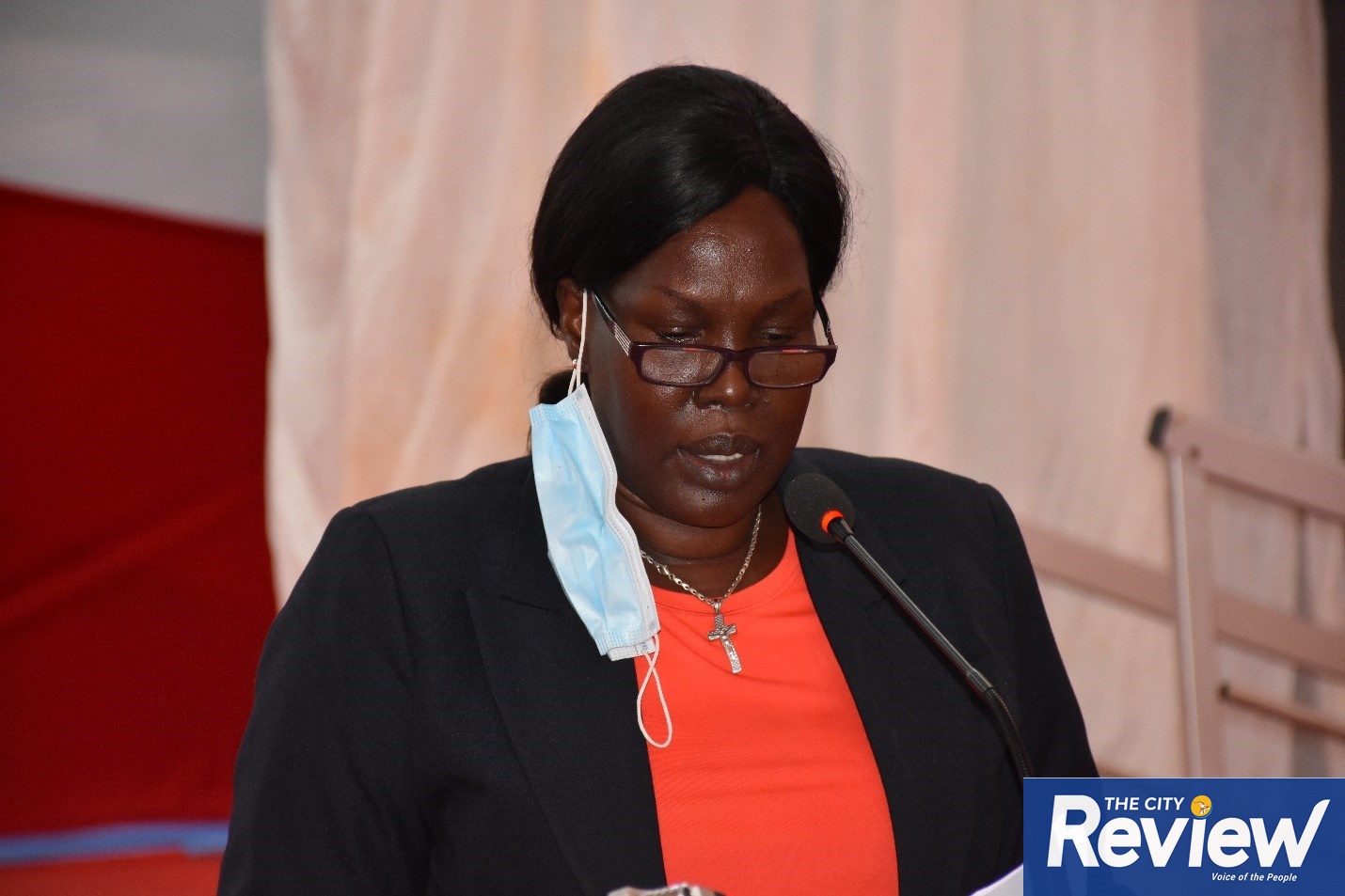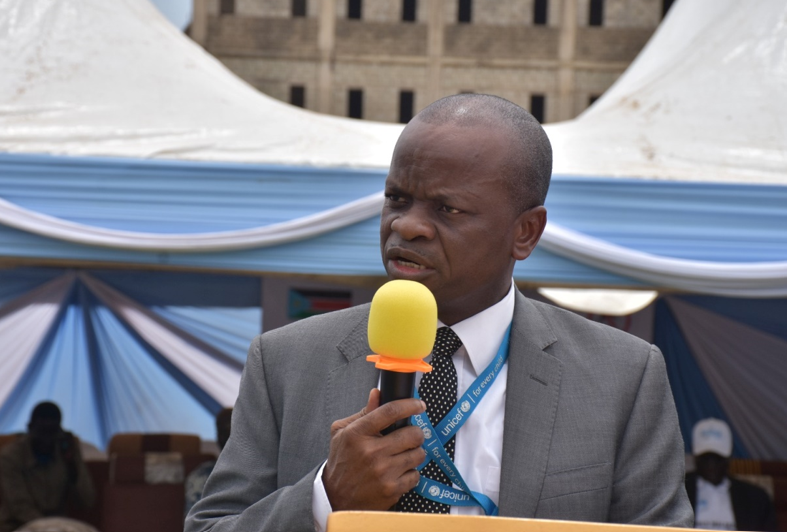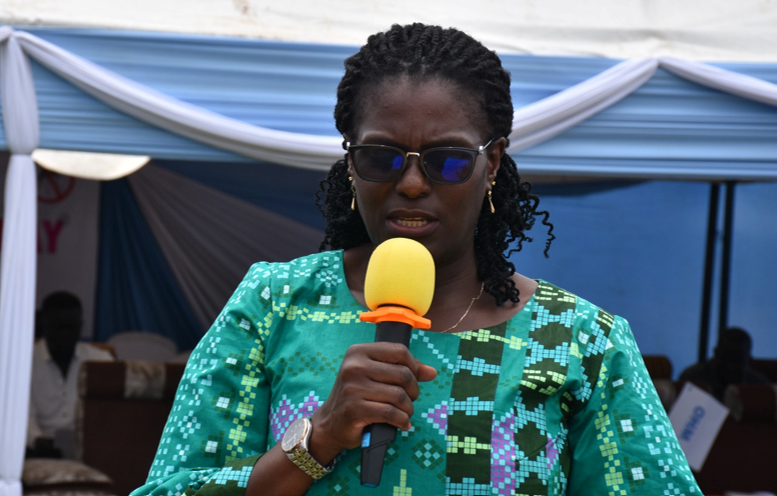Why sacked Acuei leaves MoH head high

Elizabeth Acuei Yol was sacked on Wednesday as the Minister of Health by President Salva Kiir who immediately named her replacement in a separate decree readout on the state-owned South Sudan Broadcasting Cooperation.
Achuei was replaced by Yolanda Wel Deng, who was a member of the Reconstituted Transitional National Legislative Assembly (RTNLA), representing the main armed opposition– Sudan People’s Liberation Movement in Opposition (SPLM-IO).
Though no reason was cited for Ms. Achuei’s removal, her nearly two years of tenure was characterised by criticisms she courageously endured and stick by her job against all odds.
On several occasions, her party boss, Dr. Riek Machar, was called on to replace her over incompetence by activists, senior members of the opposition, and the Sudan People’s Liberation Movement in Government (SPLM-IG).
“My brother Dr. Riek nominated the minister of health because of issues of his percentage [in the revitalized peace agreement], hoping that she (Achuei) would deliver,” a senior SPLM member was quoted in June 2020 a few months after the formation of the government.
“Yes, the position can be given, but they have to be given with meaning. This is just because I have someone here and there.”
In December 2021, an activist, Ter Manyang Gatwech, the Executive Director of Center for Peace and Advocacy, claimed that Achuei was not competent enough to discharge her role in the critical ministry, dealing with health matters in the country.
“Hon. Elizabeth Achuei failed to prove herself to demonstrate the competency at a time she was requested by the lawmakers to do so,” Manyang said,
” We believe citizens deserve a competent leader who can be informed that is grounded in science, truth, and authority and integrity.”
Notwithstanding all the criticisms, Ms Achuei, who was appointed a few months after the break of the COVID-19 pandemic, proved to critics her ability in fighting against the virus that has now been subsidised significantly.
Scores
Through engagement with international health partners, such as World Health Organisation (WHO), and International Center for AIDS Care and Treatment Program (ICAP), she inaugurated two critical health facilities in the country.
One of these that she would be remembered for is the modern Public Health Emergency Operations Centre (PHEOC) for coordination of health matters across South Sudan. The other is the consolidated guidelines for the prevention and treatment of HIV and the data management unit.
“The Ministry of Health, in line with development partners, has made considerable efforts to address the HIV/AIDs epidemic in the country, and to ensure that we move towards achieving the global target of ending HIV/AIDs as a public health threat by 2030,” she said at the inauguration of the two centres on February 22.
The two centres— the PHEOC and HIV Data Management Unit—would help South Sudan, which has continued to experience recurrent epidemic-prone diseases, and public health and humanitarian emergencies.
The emergency centre is a critical component of detecting and controlling any potential outbreak and serves as the strategic coordination centre for health emergencies, including the COVID-19 response.
The HIV Data Management Unit will enable the ministry of health to collect, manage and make informed decisions to prevent the epidemic using the HIV/AIDS guidelines.
Ms. Achuei, now a Member of Parliament, has been appointed by her party SPLM-IO, as the Chairperson of the National Committee on Humanitarian Affairs, a day after her sacking.
Ms. Achuei also managed to control the crisis in the ministry of health when she fell out with her undersecretary, Victoria Anib Majur, last year.
The conflict which resulted to the suspension of Ms. Anib, crippled the Juba Teaching Hospital, disrupting health service delivery to people in need as the hospital’s managerial positions fell vacant.
But she used legal powers to challenge the conflict as well as to resolve after nearly five months.
“In exercise of the powers conferred upon me under Article 114 (2) (c) and Article 31 of the Transitional Constitution of the Republic of South Sudan 2011 (as amended), read together with the Republican Decree No: 222/2020; I Elizabeth Acuei Yol, Minister for Health, do hereby issue this Ministerial order,” the statement read.
“Lifting the suspension of Dr Victoria Anib Majur, the Undersecretary for the Ministry of Health. The Undersecretary for the Ministry of Health is hereby directed to resume her duty immediately. “
However, the minister came under immense criticism, especially for his failure to handle the cases of ill equipment at the country’s main referral facility: Juba Teaching Hospital. For instance, recently, reports of power outages and scarcity of water supply threatened to shut down the labour wards.


